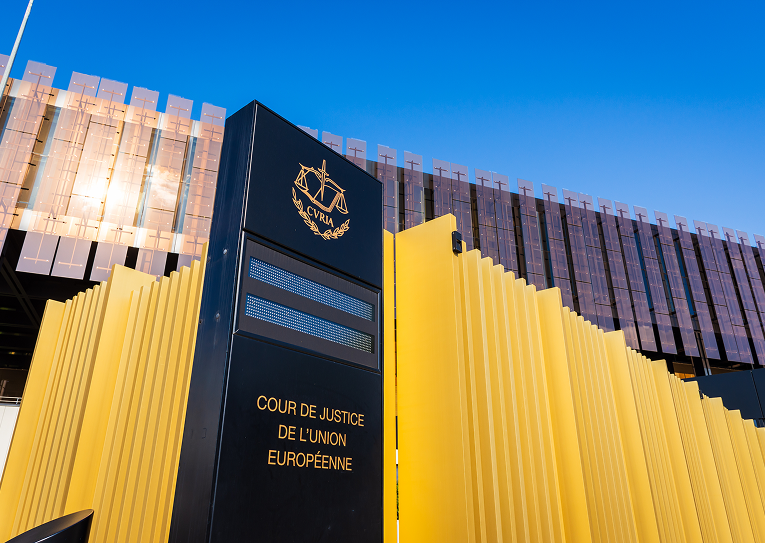Kelig Bloret-Dupuis, Legal Director Competition & Antitrust of the EssilorLuxottica group and lecturer at the University of Rennes, and Faustine Viala, partner at Willkie Farr & Gallagher and head of the Competition & Antitrust department in Paris, provide a practical and constructive perspective on these issues.
In competition law in particular, the question of legal privilege for in-house counsel remains a hot topic, despite the many about-turns in the numerous projects which have sought to introduce this. What are the challenges with regard to your practice?
Kelig Bloret-Dupuis : I see three main challenges today. First, psychological barriers still need to fall. A number of participants still consider that legal privilege would prevent companies from being prosecuted, or practices from being identified and qualified. The experience in other countries in the English-speaking world for example, shows that this does not interfere with the proper administration of justice or with the interventions of regulatory authorities and judges.
Then there is an issue related to legal practitioners in general. In-house counsel or lawyers in private practice all participate in applying and explaining the rules of law, in finding solutions in accordance with the rules. Therefore, it is difficult to consider that, on the same subject, the protection of an opinion depends solely on the identity of the professional who issues it. This does not make sense.
Finally, the fact of not benefiting from legal privilege still has some negative consequences. In particular, there is some case law in which the work product of in-house counsel has been used against the company. Therefore, in order not to harm the interests of the company, since you cannot protect your work product, you produce fewer written documents. It is therefore more complicated to have issues shared and understood by as many people as possible within the company. This is not beneficial to anyone.
And let is not forget that last year’s reform was not supposed to “open the floodgates” on this issue. It was intended solely to grant the possibility of issuing protected consultations to a small number of legal professionals – in fact, mostly chief legal officer – addressing company management.
In competition law, not being able to write things down means wasting time, creating tensions, partial understandings, sources of dissatisfaction and the transmission of incomplete or incorrect information.
Kelig Bloret-Dupuis
Legal Director Competition & Antitrust of the EssilorLuxottica group
Does this make it more difficult to ensure that the operational staff most concerned by competition law are fully acquainted with its requirements?
K. B.-D. : Competition law is primarily concerned with business and marketing strategies and practice. Our role on a day-to-day basis is in this area. However, projects often evolve quickly and responsiveness is the key to efficiency. Not being able to write things down and, therefore, provide guidance, not being able to clearly propose options in writing means wasting time, creating tensions, partial understandings, sources of dissatisfaction and the transmission of incomplete or incorrect information..
Faustine Viala : The most important thing is to ensure the best possible cooperation within the company, between legal teams, managers and teams, and also with the company's outside counsel. In recent years, clients have asked us for training on legal privilege and how it is applied in the U.S, the UK and other countries and continents. The aim is to know what a in-house can and cannot put in writing and how to handle this information, depending on the addressee, the countries concerned, etc. This de facto limits the role of the French in-house counsel instead of creating a virtuous, positive effect for compliance with the law, particularly in terms of competition law, where sharing knowledge to managers and operational staff is key. If application of the law is managed by the in-house counsel, we will have fewer cases arising and fewer violations of competition law. It is difficult to understand this defiance from public authorities, which is more noticeable in France than elsewhere.

The other dimension of the protection of the company’s interests in competition law is its defence rights, in particular in the context of litigation. Should we consider that these rights have been weakened?
K. B.- D. : Whether in France or in Europe, we have an institutional structure, a rule of law, which establishes and protects the rights of litigants before the authorities and the courts of appeal. I also think that, under the impetus of the European Commission, through the instruments it adopts or through its initiatives – at least in competition law - the idea is always to develop these rights and to ensure that in the different Member States these rules exist, are applied and respected. Today, it seems to me that this institutional framework is a major keystone for the European Union and its member-states that must be preserved. Nevertheless, improvements are both possible and desirable, without necessarily however requiring legislative evolution.
For example, the conduct of litigation proceedings would be improved if companies could be heard at different stages of the proceedings. In litigation, there are two successive phases: first the investigation and then the adversarial proceeding. The second begins with the sending of a statement of objections to companies, setting out the charges being made against them and their qualification in law. The defence process consists of responding to these objections. However, this response is part of a highly formal exercise in which companies must react according to the analysis grid established by case law to contest the facts and the qualification of a practice. This is not an explanation but a defence. The exercise of the rights of the defence should however take place before we reach this stage, that is to say during the investigation phase.
Indeed, the company is often not heard during the investigation phase even though competition law is, in essence, an economic right: by definition, the approach of the authorities is based on the identification of a market, requires an understanding of its dynamics, its actors, the products and services that are exchanged there, the type of competition that is exercised there. All these economic realities are prerequisites for achieving legal qualifications of practices. The value of an exchange of views at this stage, i.e. in the early stages of the investigation, seems to me to be important in clarifying the facts. The authorities themselves have nothing to lose. Such hearings did exist in the past. There is no objective reason why they should not be possible again.
In addition, we may be required to assert our defence rights in the context of procedures such as dawn raid. It is difficult to hear the representatives of the authorities complaining about this and indicating that the length of the proceedings, of which we are also critical, can supposedly be explained by the exercise of our defence rights.
F. V. : This question also concerns timing. The speed with which the competition authorities’ procedures take place is not the speed with which business is conducted. As soon as the Commission sends requests for information, the companies concerned do not know what is happening. And they can be left without additional information for years, without knowing whether or not they need to change practices, or knowing exactly which ones are involved. This lack of transparency and celerity does not necessarily produce the best effects on the market.
In the context of this defence, in the absence of any legal privilege for in-house counsel, the confidentiality of communications between the company and its outside legal counsel plays a major role. Is this in danger?
F. V. : It is, and this is nothing new. The entire profession is mobilized because the legal privilege of the lawyer in private practice is being undermined. This is in danger, especially in France. This movement is based on the case law of the Criminal Division of France’s Court of Cassation which explains to us, consistently and very recently in September 2024, that client-attorney correspondence can be seized as long as it is not covered solely by defence rights. This approach significantly narrows the scope. However, what would be in line with the case law of the Court of Justice and the European Court of Human Rights is for not all attorney-client correspondence to be seized, including any in which the lawyer in private practice is providing advice, and not just that relating to defence rights.
France is not in line with what we see in Europe, including at the European Commission. Dialogue with companies, starting from the investigation phases, would allow the authorities to have better information. Extending legal privilege to in-house counsel would ensure smoother and more effective communication within companies to prevent anti-competitive practices. The absolute confidentiality of correspondence between lawyers in private practice and their clients is also a factor of compliance with the law.
Extending legal privilege to in-house counsel would ensure smoother and more effective communication within companies to prevent anti-competitive practices.
Faustine Viala
partner at Willkie Farr & Gallagher
When it comes to competition law, companies sometimes conduct internal investigations and audits, often in collaboration with external experts, including lawyers. Here again, there is the question of the processing and protection of the reporting information. Where are you involved?
F. V. : When it comes to audits related to competition law, we are involved under several circumstances. Clients may conduct general, financial and legal audits, including compliance with competition law. This is the case in particular when a group has recently acquired a new company. But the practice also exists, over time, within some subsidiaries, more sensitive than others. Further audits are triggered as a result of a suspicion and these must be completed in a more urgent manner. Finally, there are the actions taken by the company, within the framework of investigations by the European Commission, in order to identify elements making it possible to respond to the requests for information issued by the legal services. It is then necessary to be quite exhaustive and this involves an investigation covering email, cloud storage and WhatsApp messaging in particular. Cooperation by all employees is not necessarily guaranteed which makes it essential to fully and thoroughly collect all forms of exchanges so as not to miss any element.
With internal audits and investigations, the main challenges are complying with all the existing legal frameworks as well as safeguarding the reported information and addressing potential conflicts between the company’s interests and those of the employees concerned.
Faustine Viala
partner at Willkie Farr & Gallagher
What challenges do companies and their legal advisors face?
F. V. : I see these as falling into two categories. The first category covers issues concerning the performance of these operations. This is about respecting all of the frameworks that are imposed on us. In terms of employment law and also concerning data privacy, for personal or sensitive data. The difficulty arises from the diversity of rules in each of the countries concerned and also from the special status of certain countries. For example, if the investigation being carried out leads to sensitive information being sent to the US, this must be referred to France’s Strategic Information and Economic Security Service (SISSE) at the Ministry of Economy. There may also be ethical issues making it necessary to determine, for example, whether or not it is appropriate to interview individuals in a position of proven weakness or fragility. As a general rule, the largest companies have dedicated departments (data, ethics, etc.) and internal rules that cover these situations. This makes it easier to carry out these operations.
The other category brings together issues relating to the results of this audit, in particular, the use and protection of the information that will have been reported via these internal audits and investigations. This requires a high degree of caution with the audit report that is drafted, including the format used, the framework and how to present it. On the most sensitive topics highlighted therein, strategic decisions are expected. Taken by management, these imply a smooth exchange of information between several players, which is in itself a risk factor. A good competition lawyer must be alert on these subjects. Finally, there is the issue of whether or not the company’s interests are aligned with those of the employees concerned. If they are not, it must be explained to the manager, to the head of legal, that a given employee will have to appoint his or her own lawyer. Again, there would be a benefit to ensuring that these exchanges are better covered by attorney-client privilege.
Recent economic and geopolitical changes are leading stakeholders to adapt or change. Should competition law also be adapted so that it remains relevant in the light of these new economic realities?
K. B.- D. : This is an area of law that normally should really be in line with economic reality. And I acknowledge that the role of the authorities is not simple, particularly in terms of merger control, because they must make a prospective analysis of the potential effects of an acquisition or a merger on market dynamics.
This analysis is based on three pillars: market tests, the use of internal company documents and, finally, economic tests. To achieve these, simple indicators are used, such as the margin rate. However, they are not calculated in the same way by companies and by the authorities. They also use much more advanced tests such as UPP (Upward Pricing Pressure) or GUPPI (Gross Upward Pricing Pressure Index). However, these tools are not used by companies to determine the interest of a significant transaction or by law firms to assess the associated antitrust risks. Competition law is therefore based on economic theories on the basis of which analytical tools are forged that do not always reflect the economic reality as experienced by market participants.
It is not a matter of questioning these tests because they are also very useful. But care must be taken not to be overly theoretical. So, if economic tests conclude that there is a risk of a significant impact on competition in a market, they should only be considered by a competition authority if the theory is supported by internal company documents, by a strategy plan.
So, to answer your question about economic and geopolitical changes, we must first of all rely on the fundamentals of competition law and find or maintain a balance between market tests, internal documents and economic tests before concluding an analysis
If competition policy were considered in conjunction with industrial and innovation policies, the effects would generally be positive for markets, and consequently for consumers. It would also serve as a means of promoting Europe.
Kelig Bloret-Dupuis
Legal Director Competition & Antitrust of the EssilorLuxottica group
F. V. : As in litigation, there would need to be a little more transparency and discussion. This would make it possible in particular to explain to the authorities the economic rationality of a transaction at an earlier stage. The authorities regularly publish guidelines that are there to provide companies with better guidance and also consult the market upstream in order to obtain opinions on the wording of these guidelines. These are initiatives that are clearly appreciated by companies and practitioners but which still sometimes have a limited impact. Companies need even greater consistency, predictability and legal certainty in the application of competition law. In addition, in the current context, European industrial policy and the defence of our European champions, in particular, should be taken more into account.
K. B.- D. : As many professionals argue, if competition policy were considered in conjunction with industrial and innovation policies, the effects would generally be positive for markets, and consequently for consumers. It would also serve as a means of promoting Europe.
Should we expect changes in the practices of the US competition authorities?
K. B.- D. : This is a subject that is naturally being looked at with great attention and which requires the utmost caution, even if the US authorities have been very active for many years, including towards foreign companies.
F. V. : Right now, it is hard to know what is going to happen. We must remain pragmatic. The new HSR form (file to be completed in merger control in the US) has been completely revised and it has become very cumbersome in terms of the information and analysis required (more similar to the European CO Form). Trump has not changed this, even though it was a project launched and validated under the Biden administration. Second, the trend under the Biden administration was to go to litigation very frequently over complex merger transactions, with zero predictability for the parties. Will this trend be stopped altogether? It is far too early to say. We remain very cautious about what is going to happen. Finally, for all major transatlantic operations, in addition to merger control, even greater consideration will have to be given to the impact of CFIUS (the inter-agency committee of the US government that reviews foreign investments in American companies for reasons of national security).


